BOT 14 LAB - EXERCISE 2 PRIMITIVE PLANTS: BRYOPHYTES
1/19
There's no tags or description
Looks like no tags are added yet.
Name | Mastery | Learn | Test | Matching | Spaced | Call with Kai |
|---|
No analytics yet
Send a link to your students to track their progress
20 Terms
Adapting to life on land resulted in defining characteristics observed in land plants:
having a protective jacket of cells that surrounds the egg and sperm-producing structures (archegonia and antheridia);
having a protective layer of cells covering spore-producing structures (sporangia);
meiotic production of spores in tetrads covered with sporopollenin-impregnated walls;
having a protected embryo;
having a waxy coating, the cuticle, to protect aerial plant parts
having specialized cells for transport of water and food (vascular tissues).
Adapting to life on land resulted in defining characteristics observed in land plants:
having a protective jacket of cells that surrounds the egg and spermproducing structures (_________ and _________);
having a protective layer of cells covering spore-producing structures (______________);
meiotic production of spores in tetrads covered with ______________-impregnated walls;
having a ______________;
having a waxy coating, the cuticle, to protect aerial plant parts
having specialized cells for transport of water and food (______________).
Bryophytes
___________ are considered as the oldest group of plants to successfully colonize terrestrial niches.
gametophyte
As the only land plants with a dominant ___________ generation, bryophytes exhibit structural and reproductive attributes that are exclusive and unifying.
Sporophytes; monosporangiate; matrotrophic
_____________, their diploid asexual phase, are all ____________ and ______________ (nutrition for survival came from the female nutritive tissue), throughout their lifespan.
nutritive foot; seta; sporangium or capsule
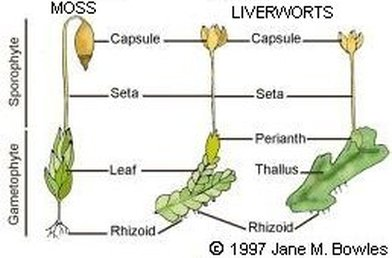
In their greatest structural complexity, bryophyte sporophytes consist of a __________, _________, and a single terminal ____________.
Marchantiophyta (liverworts)
Bryophyta (mosses)
Anthocerotophyta (hornworts)
Traditionally, the term “bryophytes” has been used to describe an assemblage of three divisions:
_____________ (_____________)
_____________ (_____________)
_____________ (_____________)
oil bodies
A. Liverworts: Division Marchantiophyta
One distinctive feature of liverworts is the presence of __________ which are lipophilic globules suspended in proteinaceous matrix.
thallose liverworts
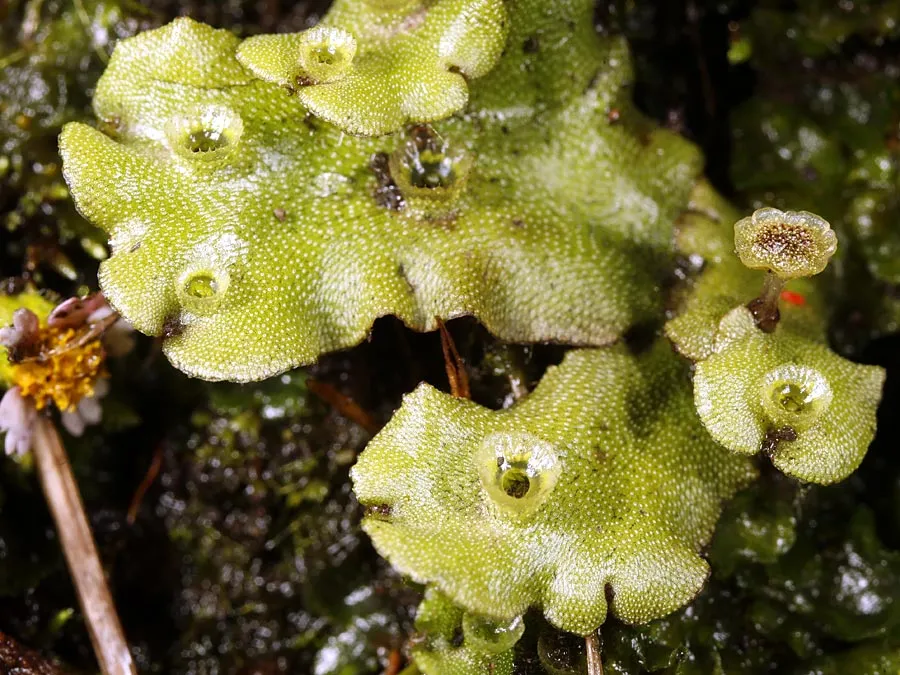
A. Liverworts: Division Marchantiophyta
The most familiar liverworts consist of a prostate, flattened, ribbon-like, or branching structure called a thallus; these liverworts are termed ____________.
leafy liverworts
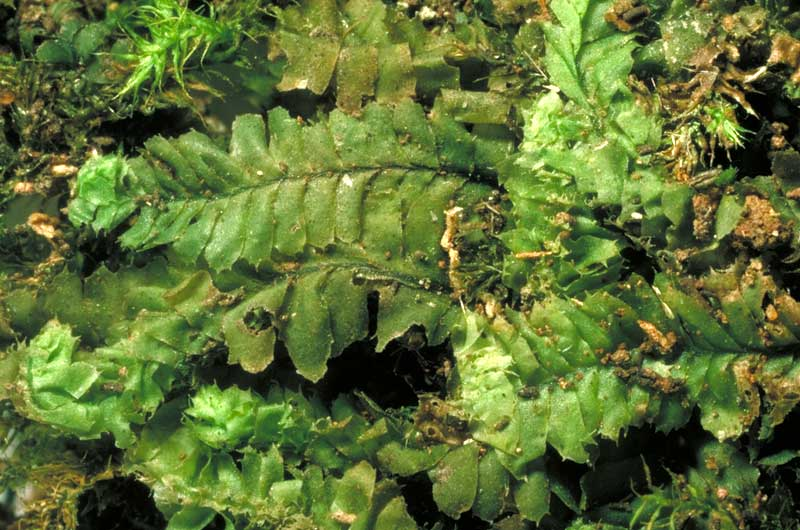
A. Liverworts: Division Marchantiophyta
However, most liverworts produce flattened “stem” with overlapping scales or “leaves” in three ranks; these are called ______________.
thallose; midrib; rhizoids
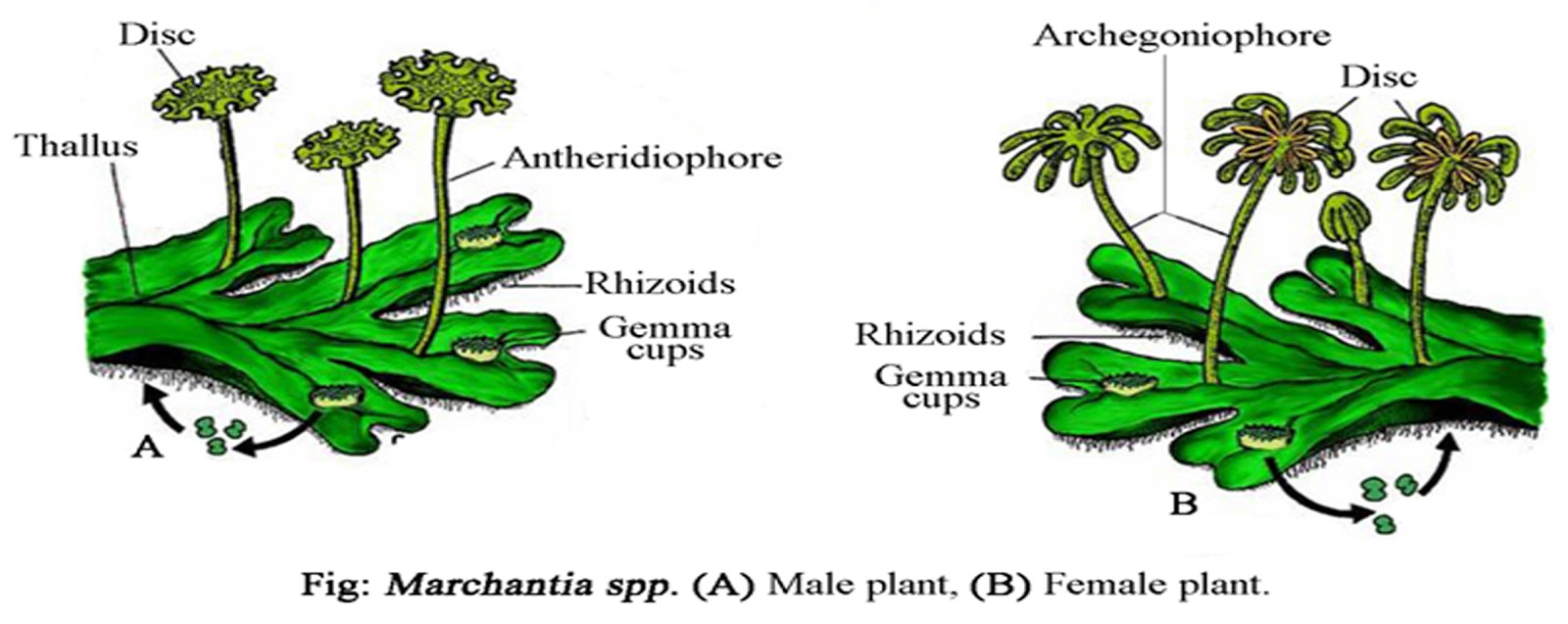
gemmae; gemmae cups
fragmentation
A. Liverworts: Division Marchantiophyta
Marchantia is a __________ liverwort. The thickest part of the thallus is the __________. The ventral surface has hair-like projections called __________ which function for the anchorage.
It can form new gametophytes asexually by forming __________, small multicellular bodies produced within __________ that are splashed out by falling raindrops and carried by rain water to other areas.
Another means of asexual reproduction is by __________. This is where older portions of the branching thallus die, leaving the growing tips isolated to form individual plants.
dioicious; gametophytes
antheridiophore; antheridia
archegoniophores; Archegonia

Rain stimulates the antheridia to release sperm that make their way to the egg inside the archegonium. Fertilization results to the formation of the zygote which undergoes successive cell divisions to form an embryo. Diploid sporophytes develop within the swollen archegonia.
A. Liverworts: Division Marchantiophyta
Marchantia species are mostly __________, having separate male and female __________.
The mature, male gametophyte produces several small, umbrella-like structures called __________ which bears numerous __________ embedded along their dorsal surface. Antheridia are the site of sperm production.
A female gametophyte, on the other hand, produces several __________ that resemble miniature palm trees. __________ are formed on the ventral surface of the archegonial disc and are the sites of egg production.
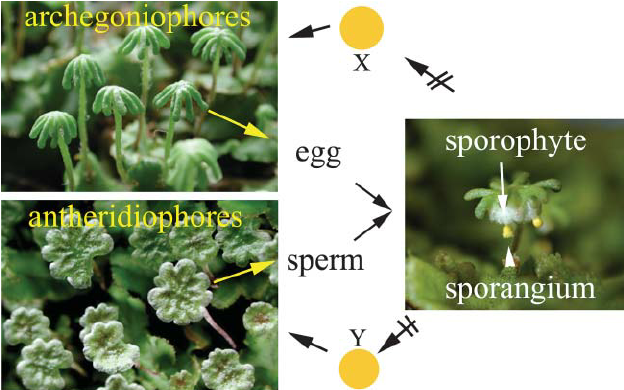
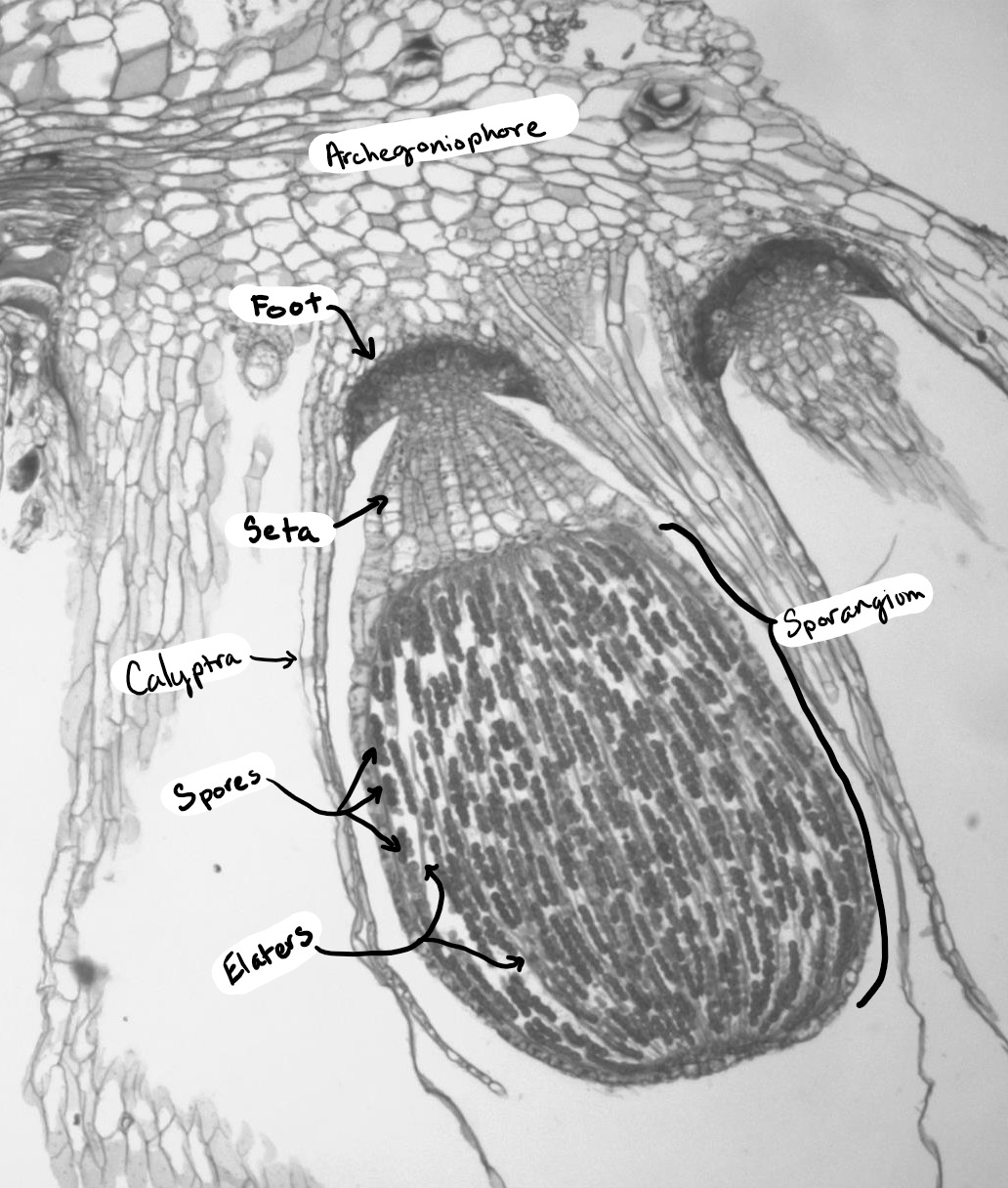
sporophyte; foot; capsule; seta
elaters; protonema
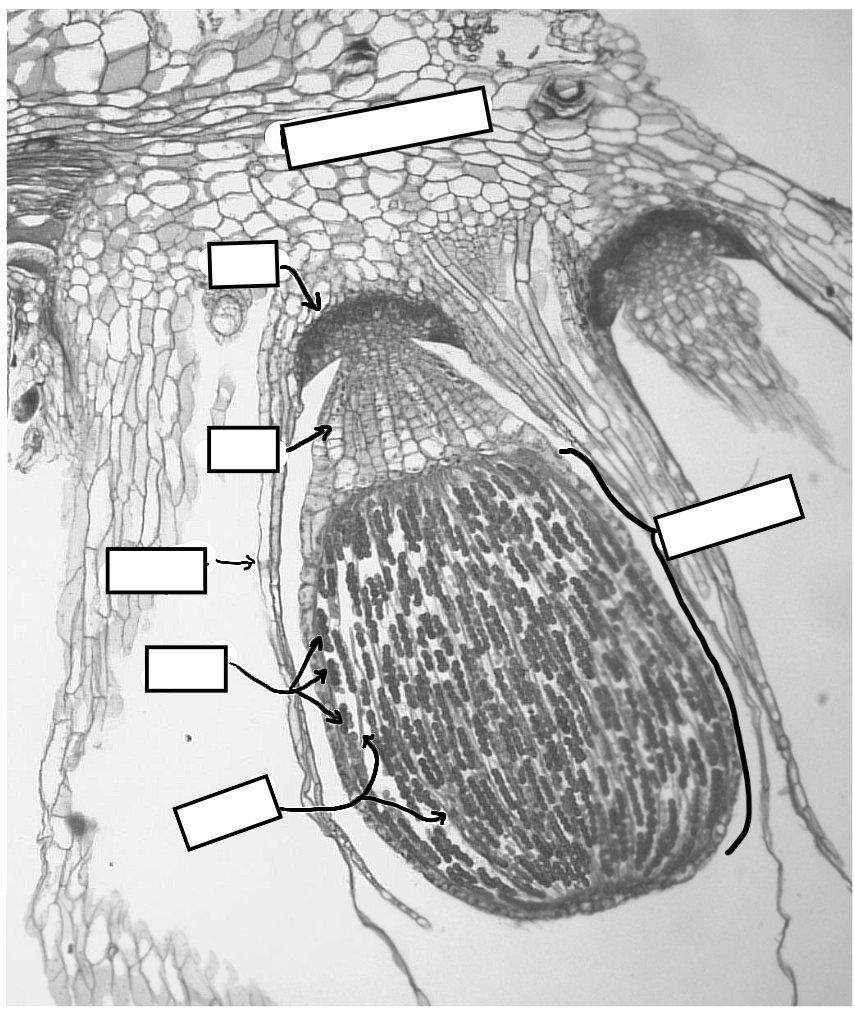
A. Liverworts: Division Marchantiophyta
The Marchantia __________ is a non-photosynthetic structure ventrally located under the disk of the archegoniophore.
It has three distinct regions:
a _________, which anchors the sporophyte in place and receives nutrients from the female gametophyte
a spherical or ellipsoidal _________, where the spores produced inside are intended for dispersal
a __________, a stalk connecting these two regions.
The _______ are springlike and will push open the wall of the capsule where it bursts to scatter the spores.
The spore-producing cells undergo meiosis to form haploid spores for dispersal. The spores will germinate to produce _________ filaments from where the mature gametophyte will develop.
gametophytic thallus; sporophytes
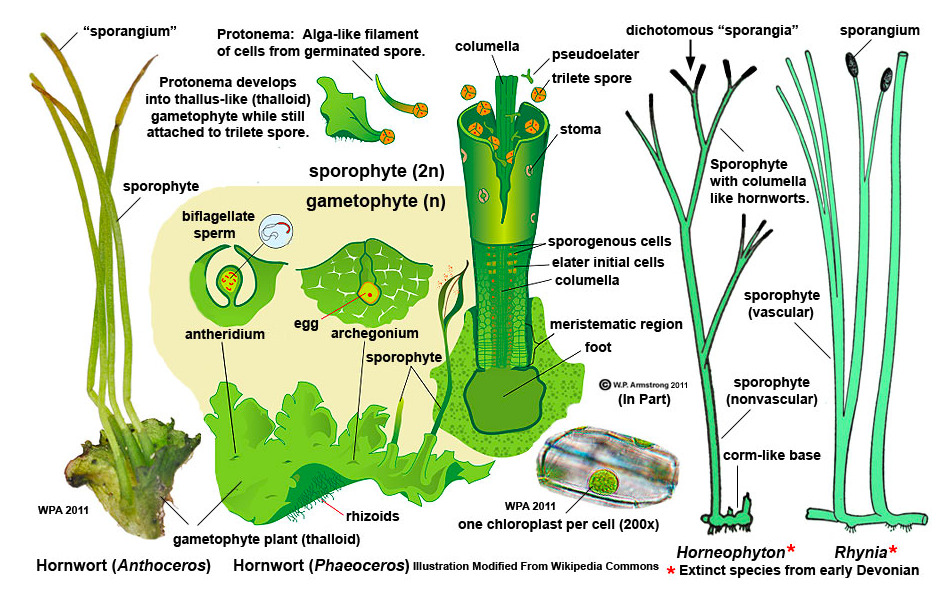
B. Hornworts: Division Anthocerotophyta
Hornworts grow as a thin rosette or ribbon-like _________ around one (1) to five (5) centimeters in diameter.
It is easily distinguished from other bryophytes by its erect, photosynthetic, horn-like _________ arising from the thallus.
Many hornworts develop internal mucilage-filled cavities that are occupied by cyanobacteria like Nostoc, giving the hornwort its distinctive blue-green color.
monoecious; foot; capsule

B. Hornworts: Division Anthocerotophyta
Anthoceros sp. has an orbicular thallose gametophyte with rhizoids on the ventral side and reproductive structures on the dorsal side. Most Anthoceros species are _________ (both archegonia and antheridia are embedded under the dorsal surface of the thallus).
During fertilization, the biflagellate sperm swims through the moisture or water droplets from the antheridia to the archegonia where the eggs are fertilized forming a zygote.
This develops into an embryo and several mitotic divisions after can produce the _________ and _________ of the erect horn-like sporophyte.
foot
intercalary meristem
columella; capsule wall; sporogenous layer
pseudo-elaters
protonema

B. Hornworts: Division Anthocerotophyta
At the bottom of the sporophyte is the _________, a globular group of cells that receives nutrients from the parent gametophyte.
An _________, located in the middle of the sporophyte, will continue to divide and produce new cells that will form an elongated capsule.
Both the central (_________) and surface cells (_________) of the capsule are sterile, but between them is a _________ that will divide to produce pseudo-elaters and spores.
The _________ are multicellular with helical thickenings that change shape in response to dying, and consequently twist to disperse the spores. Hornwort spores range between 30-80 µm in diameter, or larger.
They are released from the capsule when it splits lengthwise from the tip. The spore germinates to form a _________, which then later becomes the gametophyte.
C. Mosses: Division Bryophyta
seta
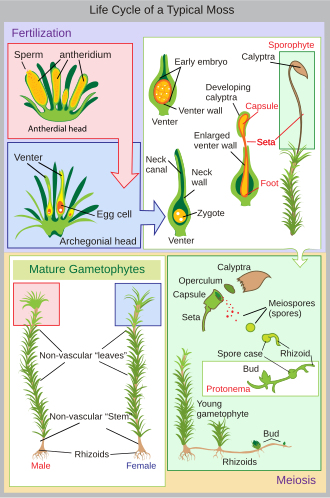
C. Mosses: Division Bryophyta
Mosses are small, leafy, bryophytes which could grow up to 10 cm in height. Most species grow closely together in clumps or mats in damp or shady places.
Not all mosses are dioicious, but around ~1200 of them are. Their simple “leaves” cover the thin wiry “stems” that are either erect or creeping.
At certain times, female mosses produce sporangia or capsule borne on stalks (_________) on the tip of their thallus.
capsule, seta, and foot
pleurocarpous; acrocarpous

C. Mosses: Division Bryophyta
As mentioned earlier, the sporophyte is composed of the _________.
Bryophyta sporophytes can be growing from the side of the stem (_________) vs or at the tip of the main stems (_________).
columella; sporogenous cells; operculum

C. Mosses: Division Bryophyta
The capsule consists of a central column of sterile cells (_________) surrounded by a region of _________.
The latter is enclosed by a capsule wall of several cell layers including an epidermis with stomata.
The tip of the capsule is covered by a lid (_________) that is shed off during spore dispersal.
peristome teeth
Peristomate; nematondontous; arthrodontous
Aperistomate

C. Mosses: Division Bryophyta
At the rim of the capsule is a row of hygroscopic teeth (_________) which curls outward as they dry and eventually disperse spores by splitting the capsule wall.
_________ mosses are differentiated into two major groups based on mature teeth structure, _________ mosses, having “unjointed teeth” which are four peristome teeth that are composed of whole cells; and _________ mosses, having teeth composed of cell wall fragments.
Capsules can also be differentiated on how they split open. _________ capsules, considered primitive, split vertically into valves to release spores.